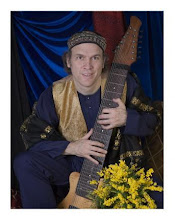Here's a post I contributed to a discussion about Halal meat on beliefnet
Doesn't the Koran say that it is permissible to eat Haram food when that is the only way to avoid starving? This may be a bit of a stretch, but it seems to me that when you eat Haram food believing it to be Halal you're eating of the food is unavoidable, in much the same sense. If you believe that eating Halal is an essential part of your spiritual path, I think you need to be reasonably rigorous in making sure that the food really is Halal. The Medieval Christian writers spoke of seven virtues, one of which is Prudence (i.e. careful practical intelligence.) If you've got good evidence that a particular food item is not Halal, you have a moral obligation to use your common sense and wisdom to weigh that evidence carefully. But there has to be an outside limit as to how much time you should spend doing that kind of research. We also have other obligations as a citizen, husband, father etc. that should not be compromised by compulsive attempts at certainty. I think this is pretty much Abdullah's point. Nice to see we finally agree about something.
My spiritual path is Vajrayana Buddhism and we are given many different kinds of spiritual practices to choose from. We have teachers who are celibate monks who don't drink alcohol, and "House holder" Yogis who raise families, drink and otherwise remain part of the world. But everyone agrees that if you make a commitment to a spiritual practice, you should take it seriously and follow it to the letter. I salute all Muslims who have the self-discipline to choose and follow through the most rigorous aspects of Islamic practice.
We Vajrayana Buddhists, are however, fairly lax about whether or not our practices come from "false" prophets. We believe that sincere and pious devotion to a "false" prophet is better than a twisted misinterpretation of any "true" prophet. We have a story about a Tibetan Merchant whose mother asked him to bring back a relic of the Buddha's from India. He forgot to bring the relic, so he found a dogs tooth in a skull by the road, wrapped it in a silk scarf and told his mother it was one of the Buddhas teeth. She was delighted,and she and her friends prayed to it every day. Eventually the tooth began to radiate a powerful spiritual light. The point of this story is it was the faith and motivation focused on it that made the tooth holy, not it's history of belonging to Buddha or a dog. I think that this is equally true of dietary practices followed by many religions, and I have no doubt that many Muslims have benefited from the devotion required to follow the rules of Halal.
Wednesday, February 2, 2011
Subscribe to:
Post Comments (Atom)

"The point of this story is it was the faith and motivation focused on it that made the tooth holy, not it's history of belonging to Buddha or a dog."
ReplyDeletefascinating ----because it is a completely different view from a Muslim.....worship/prayer in Islam does not make "an object" holy---it is for the spiritual benefit of the individual.----therefore, it would have been the individual---not "an object" that would have radiated light (hypothetically).
ofcourse--the whole definition of "faith" is different in Islam---so the story would never fit a muslim context anyway. (not to mention---an object is being worshipped instead of God)
faith/trust(Iman)= the use of the intellect and reason to arrive at conviction. (Blind "faith/trust" is discouraged in the Quran)
by the way---In Islam, "sincere and pious devotion" does not belong to a Prophet, either "true' or "false"---it belongs to God alone. (All Prophets, messengers and wisdom teachers are respected----as the Quran mentions---God's message was sent to all human beings all over the world---some are mentioned in the Quran, some are not.)
ReplyDelete